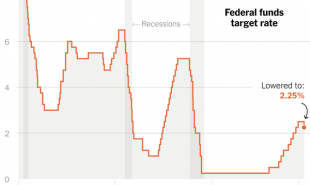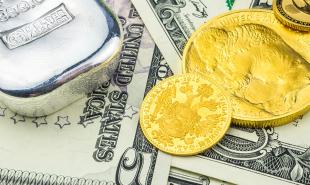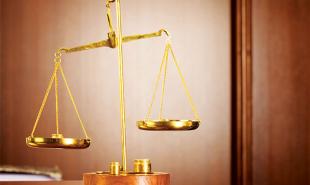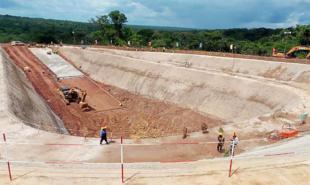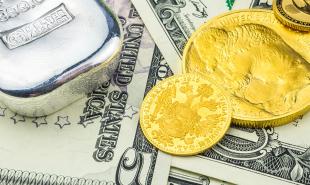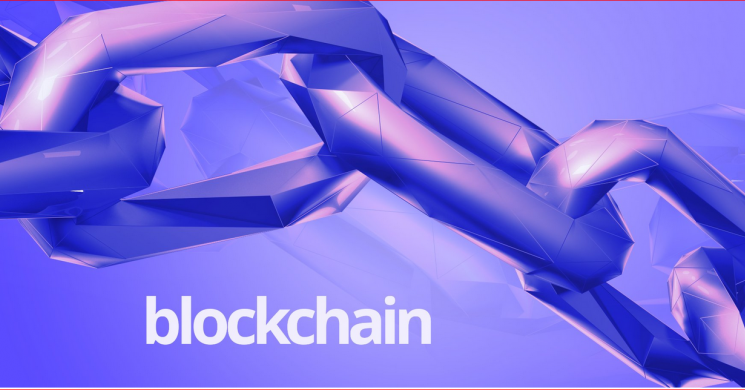
Intro by Soren K. Group
Bitcoin and Blockchain are characterized as disruptive, and indeed they are potentially. We feel it is better to differentiate between the two. Blockchain, we contend is foundational for building industries. Bitcoin, on the other hand is disruptive. Disruption is for us is becoming the preferred word of the whining incumbents who having failed to recognize revolution in their industry. The auto worker who complains about the robot, only this guy is a CEO.
Additionally, Bitcoin and Blockchain are intertwined far more than we initially believed in what we are now coming to understand is a brilliant stroke for the developers.. Some of the best parts of Blockchain coveted by the people wishing for decentralized money are only available with a Bitcoin front end. That is not lost on us.
The point of this intro is 2 fold. First to note that Mining industry executives should be attacking the false premise that Cryptos are a store of wealth. They are not. Short of that they should just keep their impulses and anxieties to themselves. Ms. Ash below does her company a disservice even if quoted out of context. Flog the idea that Cryptos are a store of wealth because they are NOT. This is a war in which CNBC and FOB shills the securities and banking are slowly stealing your lunch. They partly succeeded in GLD. Now they are going to take more with Cryptos. And it is a lie.
For this article, note that Barrick Gold's CIO "wonders aloud" if Bitcoin would soon become a greater store of value than Gold. That is nonsense at its base. What is more, what business person wonders aloud if their industry is doomed? We've opined quite strongly on the similarities and differences between Bitcoin and Gold. And Bitcoin is simply not a store of value.
If your job is to market your company in social media, that is not advisable. in fairness, the article below was written by a person working with (for?) Rio Tinto. We would like to have seen the actual quote and searched in vain for it in context.
Ms. Ash is either a genius who is paving the way for Barrick's own use of Blockchain in their own business dealings, or shown her whole industries hand in that their greatest fear is. If it is the latter, we are here to tell her, Bitcoin is not a store of wealth. And if she knew the qualities of the product her company sells and, she'd understand that. That is not to say that the public is wrongly perceiving it as such. Her job should be to correct the misinformation that is being spread by brokers and paid pundits to effect a land grab of Gold investors into the world of paper securities. For when the crypto bubble crashes, not only will wealth be destroyed, there will be that much less with which to buy her company's product.
Second; Blockchain will change almost all industries by lowering costs in mid and back offices. Fired blue collar workers will be also less sad to know that lawyers will be among the ranks for the unemployed as well, as credit departments will be less needed.
In fact, miners should be working right now with sellers of gold to create more efficient distribution of their product. Blockchain, as did the internet before it, strips away intermediaries that do not add value. Miners should be RUNNING to embrace it and in doing so connecting directly with those well run sellers with large distribution networks. The internet enabled B2B business transactions. Blockchain's promise is the C2C business model. Learn it and see how it can be implemented now.
The author goes even further discussing the way mining itself will be done. From drills to video games. And he is not off base to our observations.
Finally, we have searched for the origin post for citation in vain and Linked in does not provide or permit it. Linked-in is itself a walled garden model which is lucky to be alive. If larger media aggregators like HooteSuite are any sign, linked-in has problems coming.
When we do find the origin post we will gladly link to it here
Blockchain Will Disrupt Metals & Mining
Daniel Koffler, Senior Mgr Emerging Technology Rio Tinto
The last 12 months have seen a lot of hype surrounding potential blockchain application in many technology and financial publications and mass media in general. The public's fascination with blockchain based cryptocurrencies like Bitcoin and Ether has been the focal point of much of this attention. Bitcoin and (to a lesser extent) Ether have become significant global value stores and are already starting to capture a significant percentage of "safe haven" value transfer that for at least of a couple of millennia has been dominated by precious materials pulled from the Earth such as gold, silver and diamonds.
Michelle Ash, Chief Innovation Officer at Barrick Gold recently even wondered aloud on social media as to whether Bitcoin would soon become a greater store of value than gold. While this is a fascinating trend, the intent of this article is not to focus existing cryptocurrencies, but to explore some of the other significant changes blockchain technology will likely bring to the Metals and Mining industry in the coming years.
Tokenization of physical assets
One of the most fundamentally transformative capabilities blockchain brings to the Metals and Mining industry is its ability to tokenize physical items and allow for the distribution, sale and trading of these new representative digital assets without the costs and overhead involved in equivalent physical world manipulations of the asset. A perfect exemplar of this capability is the RMG product developed by the UK's Royal Mint. This year, the more than 1,000 year old Her Majesty's Royal Mint will begin offering a blockchain based digital token called RMG (Royal Mint Gold). Each RMG is the tokenized equivalent of 1 gram of physical gold located in the Royal Mint vaults. In issuing these tokens, the British Royal Mint is looking to transform the global gold trading market.

Today, when you trade in gold on the spot market, you are subject to fees such as handling and warehousing fees for the gold you own on paper. These fees add up quickly and can significantly effect the cost and profitability of gold trades. The Royal Mint RMG market is designed to eliminate these extraneous fees altogether and allow much more frictionless trading and exchange of gold value. The Mint is guaranteeing that RMGs will always hold at least as much value as physical gold by promising to buy back RMGs at current gold trading prices should RMG value drop below physical gold value for more than 3 days. Select Mint partners are even authorized to create, sell and trade their own derivatives based on RMGs. And to top all this off, RMGs will always be redeemable for the physical gold they represent. That's right, you can trade in your RMGs for physical gold whenever you like.
Reversing Cash-Flow in the Mining Industry
While the staid Royal Mint is very careful in its marketing of the RMG product, the global implications could be staggering. In essence this year there will be a cryptocurrency based on the gold standard (like almost all national currencies were prior to the 1970s) and it is fully backed by the British Government. The implications for the metals and mining industry are even greater. The Royal Mint has tokenized metal being held in its vaults. What if mining companies could tokenize metals and other materials that are still in the ground (the best vault in the world)?
Consider it for a moment. What if mining companies were able to begin selling and trading the value of deposits in the ground before they were dug up? The company could then purchase insurance against its ability to mine and deliver the metal to market. This would change the entire cash-flow structure of the mining industry. Miners would be able to produce cash based on the estimated size of exploration deposits and THEN pay to produce the metal. The changes this would create within the metals and mining industry are staggering.
Smarter Contracts, Fewer Lawyers
Another capability many blockchain implementations bring to the table (particularly Etherium) is the ability to create and execute smart contracts. These are the equivalent of legal contracts, yet instead of being written in legalese and possibly open to interpretation, smart contracts are written as small snippets of computer code that get executed by a triggering event. They are testable (so the outcome should never be a surprise). You can create models and simulations to test various outcomes based on any number of factors, and because they execute against a blockchain, execution and settlement tend to happen simultaneously.
Think about how much time, cost and risk this eliminates from current contract structures. Lawyers aren't required to draft contracts, they simply need to assert that the agreed terms don't violate existing laws or regulations. There is no human intervention required to execute terms of the contract. For instance when product is delivered to a customer, either the customer or even the transportation vehicle itself can assert to the blockchain that delivery has happened and the terms of payment get automatically executed and settled. No letters of credit, no financial institution intermediaries, no arguments, no misunderstandings, no excuses, no waiting. As more and more transaction migrate to smart contracts it may even be possible to eliminate accounts receivable and payable functions altogether.
Provable Product Provenance
Using blockchain to prove product provenance is another interesting use case. The Kimberly Process, responsible for providing certificates of origin and serial numbers to ensure diamonds on the market are not blood diamonds, is already investigating moving to a blockchain based system and it makes sense. Anywhere a paper certificate might be forged or lost is a great place to investigate using blockchain.
But product provenance goes beyond this. If we get production systems in metals and mining to start reporting data directly from the production process onto a blockchain system, we can instantly calculate and prove details such as product origin, custodial chain and the end to end carbon footprint involved in producing any particular tonne of ore. Furthermore, if we are generating renewable energy elsewhere or buying carbon credits to offset production emissions, we can prove to our customers and regulators that we are not double counting or otherwise fudging the system.
Publishing asset maintenance records onto a blockchain system would also provide a number of benefits. From a regulatory standpoint we could instantly prove maintenance has been done without having to manually create and submit compliance reports internally or to regulators. Furthermore, if we were then to sell assets either due to a divestiture or shutdown, we can provide the purchaser with cradle to grave records for the assets in question. Assets themselves could even query the blockchain for maintenance and operator information and be programmed to block usage if proper maintenance has not been done or the operator is not certified to operate the asset.
We've only begun to scratch the surface of some of the more interesting blockchain use cases within the metals and mining industry. The technology holds a lot of promise in almost every industry and I am very excited to see what the future will bring.
Read more by Soren K.Group




